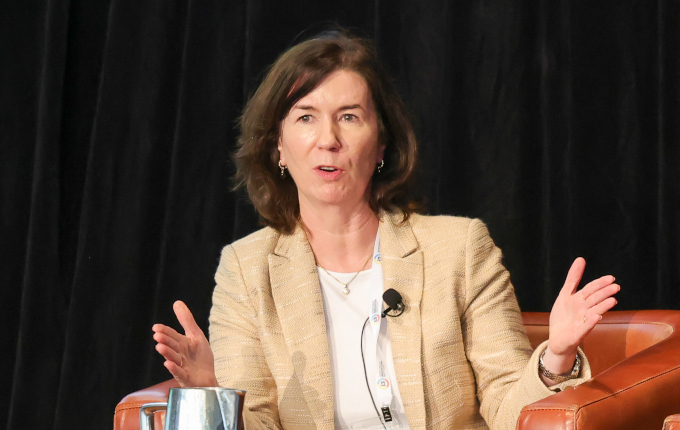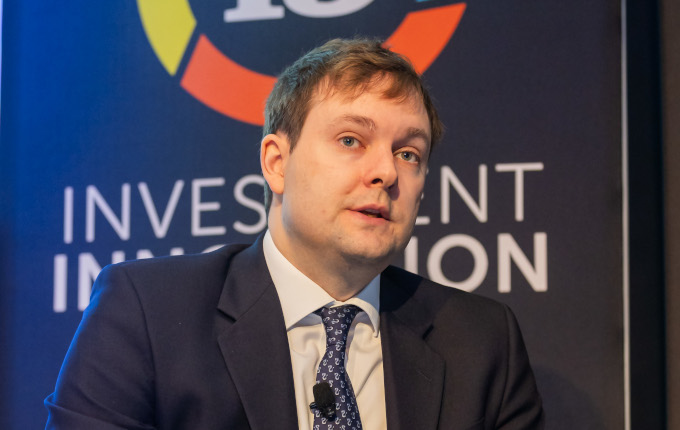In light of recent dramatic repricing offering investors higher yields and more attractive risk premiums, the appeal of fixed income has increased. Is now the time to re-examine the role of traditional fixed income, particularly in the context of climate transition?
A deep understanding of climate exposure is necessary to manage risk and identify companies that are transition leaders geared to be future winners. However, readily available databases tend to be backward-looking. How can investors develop forward-looking insights to establish an information edge?
As investors plot their path to Net Zero, taking into consideration ESG and climate methodologies, exclusionary techniques and transition risk, what are some of the alpha opportunities in fundamental climate-transition credit?
In partnership with Allspring Global Investments, we are pleased to convene this webinar on Climate Transition Credit, featuring Henrietta Pacquement, Head of Global Fixed Income & Sustainability.
This webinar will offer insights into how investors might position their portfolios to simultaneously withstand climate transition risk and yet take advantage of the associated opportunities.
Issues to be covered include:
Understanding the fundamental nature of climate risk
Climate risks are risks that any fundamental analyst should bear in mind when making investment decisions. How should investors develop a deliberate and structured approach to capture transition opportunities across sectors while managing climate risk?
How is the goal of decarbonising companies translated to decarbonising portfolios?
Simply screening out carbon producers is straightforward to implement but may not lead to desired financial or climate goals. A climate transition framework for consideration may include:
- Strategy and Governance: How strong is the firm’s climate strategy? Does it convincingly address risks and growth opportunities? Are governance systems in place that can facilitate the strategy’s implementation?
- Assets and operating positions: How cost-competitive will the firm’s physical asset base and operations be as new technologies, regulations and taxes appear?
- Financials: Can the firm maintain sufficient financial flexibility to execute this transformation? What does its profitability look like in a net-zero world? How might any climate-related liabilities affect this?
- Macroeconomic Risk: How will geopolitical and macroeconomic risks and opportunities affect the company as it transitions?
How can such a framework help investors identify companies that are poised to outperform in both decarbonisation and financial terms?
How is ESG risk linked to sovereign risk?
The link between sovereign risk and ESG is more immediately obvious when we consider governance. This relates to structures or systems that manage and control a country.
Governance indicators have long been a core part of both fundamental and quantitative analysis of sovereign issuers because institutional strength, political stability and effective policies are among the most important determinants of a country’s willingness and ability to repay its debt.
How can investors frame sovereign ESG risk, and be more thoughtful in efforts to mitigate such risks, or ensure adequate compensation for bearing them?
Speaker
![[i3] Webinar on Climate Transition Credit, featuring Allspring Global Investment's Henrietta Pacquement | Investment Innovation Institute](https://i3-invest.com/wp-content/uploads/2023/04/Pacquement_Henrietta_01-19_HighRes_RGB-430x430.jpg)
She joined Allspring from its predecessor firm, Wells Fargo Asset Management (WFAM). Henrietta joined WFAM as a quantitative analyst before becoming a portfolio manager and, subsequently, the head of the European investment-grade business for the Global Fixed Income team in London.
She has extensive buy-side experience in portfolio and risk management. Prior to joining WFAM, Henrietta was a quantitative analyst at Barclays Global Investors. Earlier, Henrietta worked in Paris for AXA Investment Management in a similar role. She began her investment industry career in 2001.
Henrietta earned a master’s degree in astrophysics from Cambridge University. She has earned the right to use the Chartered Financial Analyst® (CFA®) designation.
Enquire about this event


![[i3] Webinar on Climate Transition Credit Co-hosted with Allspring Global | Investment Innovation Institute](https://i3-invest.com/wp-content/uploads/2023/04/pxclimateaction-gc51c962b9_1920-645x430.jpg)


